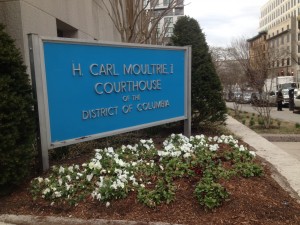What It Means To Be Heard
 The complainant is having a melt-down in the hallway. It is not my case so I have no idea what is going on. All I see are two young prosecutors trying to calm her down. The more they talk, the angrier she gets. The situation seems to be getting out of control when a U.S. Marshall arrives.
The complainant is having a melt-down in the hallway. It is not my case so I have no idea what is going on. All I see are two young prosecutors trying to calm her down. The more they talk, the angrier she gets. The situation seems to be getting out of control when a U.S. Marshall arrives.
He is an older gentleman, a supervisor, for the U.S. Marshall Service. He strolls over. He sits down with her. And he listens. She calms down immediately.
Sometimes all we want is to be heard.
The same dynamic applies to plea bargaining. It is not only that there is 100% chance of being found guilty if you accept the offer. It is also that you never have a chance to tell your side of the story.
I learned early on at the public defender’s office in Philadelphia not to get invested in a guilty plea, no matter how favorable I thought it might be. During a review of the client’s prior criminal history, the client never seemed to regret a conviction after trial. Yes, the client would say, I did my time for that. Instead, what did seem to bother the client were the charges he or she pled to. My lawyer talked me into taking that deal, the client would say. We should have gone to trial.
Our duty as lawyers is to give the best possible advice to clients. As Rule 2.1 of the D.C Rules of Professional Conduct puts it, we are obliged to “exercise independent judgment” and to “render candid advice,” no matter how “unpalatable” that advice may be. At the same time, there is a real value to the client in having his/her constitutionally mandated day in court, even if the case ultimately results in a conviction.
I was chatting about this with a colleague yesterday, and she told me she has had similar experiences to mine. I still remember the expression on the face of a client after a trial in Philadelphia. We had turned down an offer of probation and he was ultimately convicted and sentenced to almost 2 years. Who knows how he felt about his decision the next morning? Or the many mornings that would follow. For that moment anyway, as he thanked the judge and was led out of the court in handcuffs, he had the same look as the woman who was calmed down by the U.S. Marshall. It was the look of someone who has been heard.
